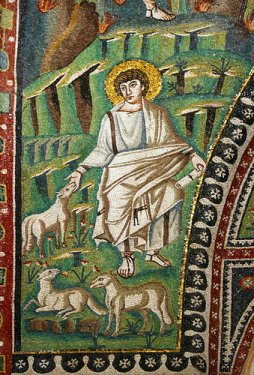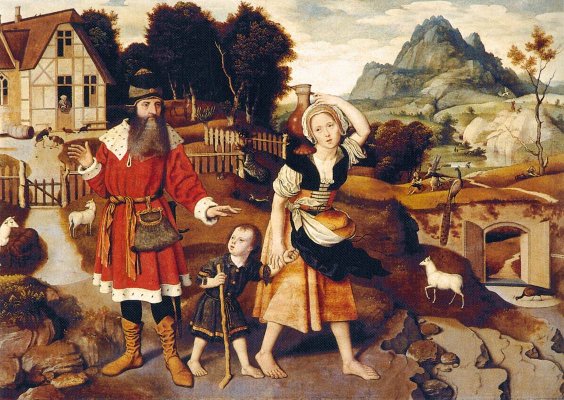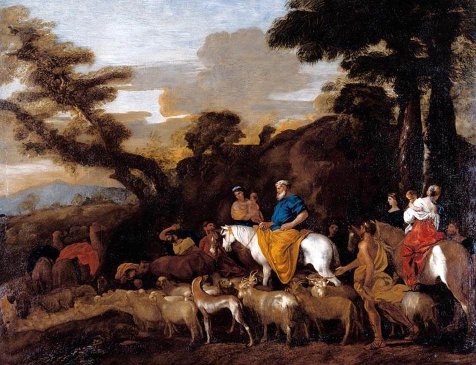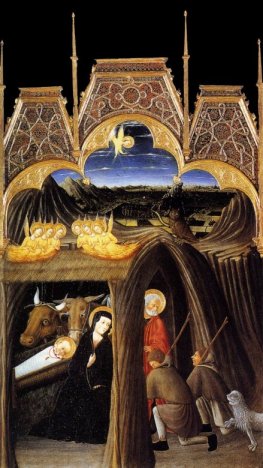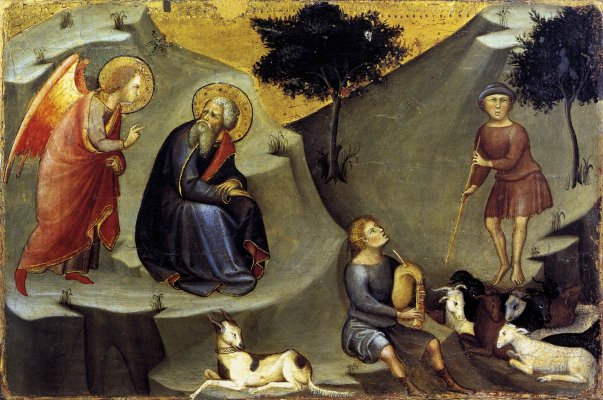|
Biblical Shepherds |
|
| You cannot
help bumping into shepherds in the Old Testament. Amos, David, Moses, Abraham, Jacob
- all were shepherds at some point in their lives. However, images of
them shepherding are not that plentiful, as more important aspects of
their stories took precedence. None of the great painters painted David as
a shepherd - later incidents in his life were much too exciting. This is
a pity, as such a picture would point up the strong links between Orpheus and Christ. But why has the shepherd
become such a key archetype? Are the qualities mentioned on the page on
classical shepherds - care, vigilance, wisdom - sufficient? If you're waiting for an answer here, well, sorry, I don't have one. Ideas always welcome. Fascinatingly, Mohammed was a shepherd too; this idea is not limited to the Christian tradition. |
|
|
|
|
|
|
|
The first appearance of shepherds in the New Testament is at the Nativity, with the annunciation to, and adoration of, the shepherds. Of course, for paintings you are spoilt for choice. Here's one of my favourites, by Pietro di Giovanni d'Ambrogio (below left). What a wonderful dog! In the apocryphal Protoevangelium of James we have an earlier annunciation, and another bunch of shepherds - the annunciation to Joachim, who is told by an angel that his wife Anne is to have a child - the Virgin Mary. (Below right.) The interesting point in the nativity story is the important part played by shepherds, men of quite low social standing. Why choose to tell them? Again, we come back to the conundrum of the shepherd archetype. Anna Jameson in Legends of the Madonna refers to an old tradition that two of the apostles - Jude and Simon Zelotes - were present as shepherd boys at the annunciation to the shepherds, but she doesn't give a source. |
|
|
|
|
| So far all
of these shepherds have been presented as real people. Now the shepherd
becomes the Good Shepherd, a metaphor for Christ: 'I
am the good shepherd, and I know my sheep, and am known of mine.'
(John Ch 10 v 14) To explore this metaphor in depth we shall have to go back to the earliest days of Christianity, and look at the earliest Christian art, here. |
|
